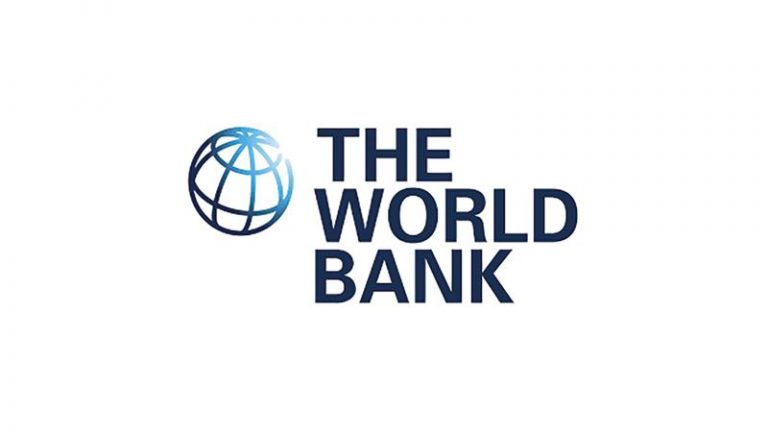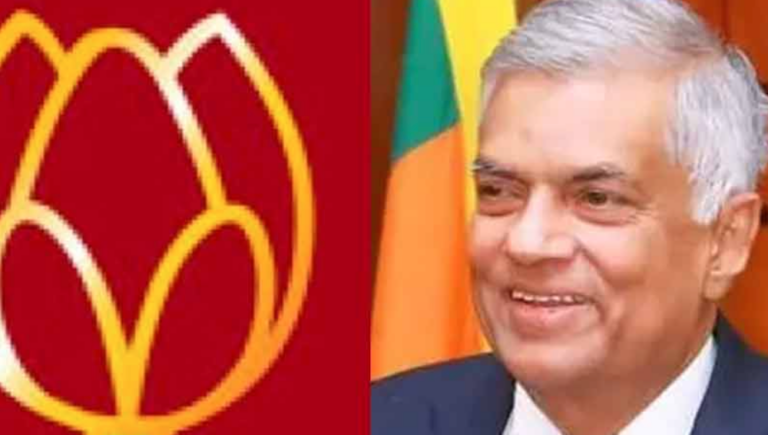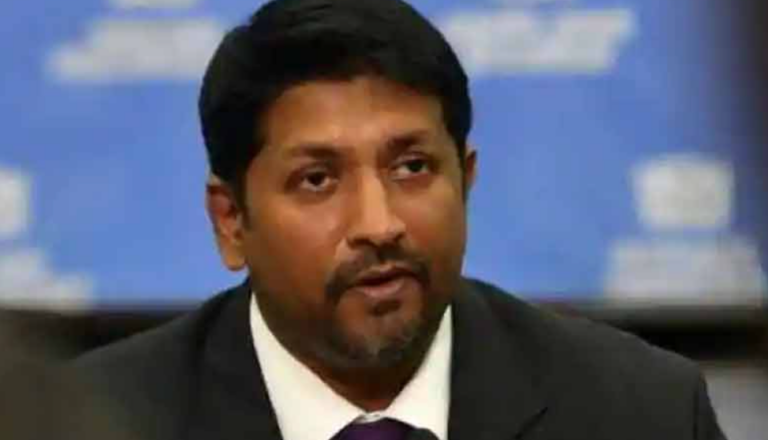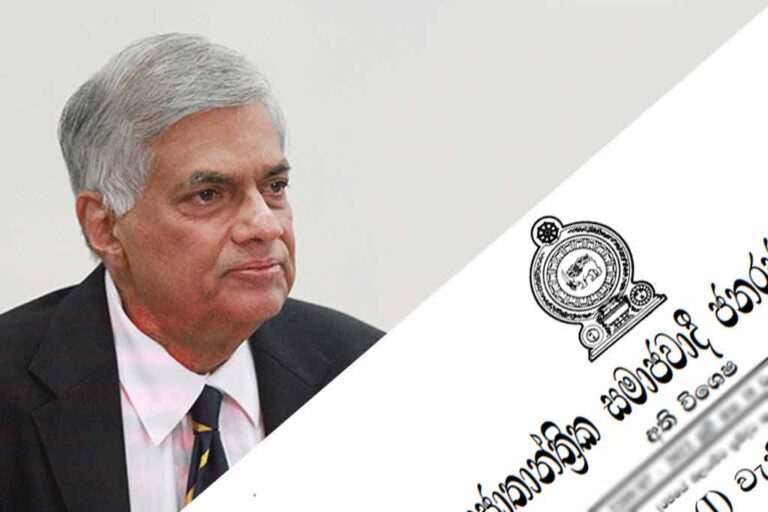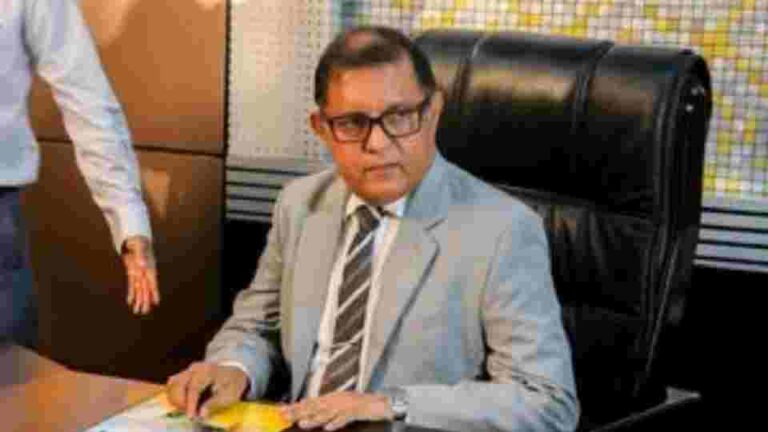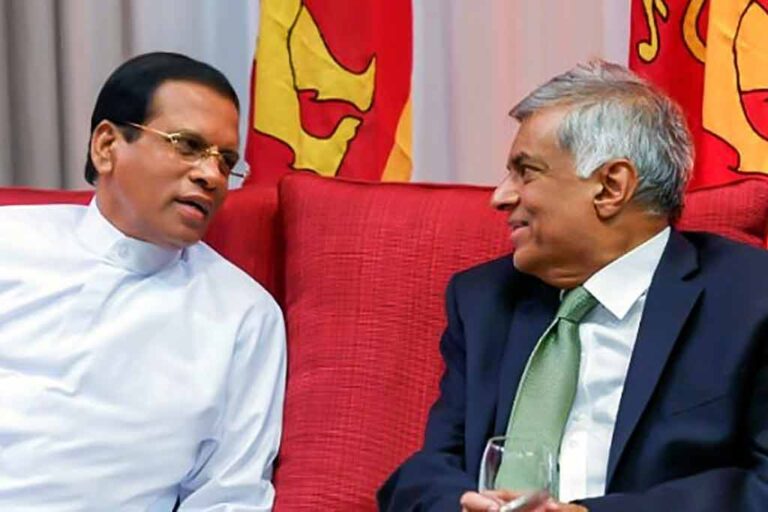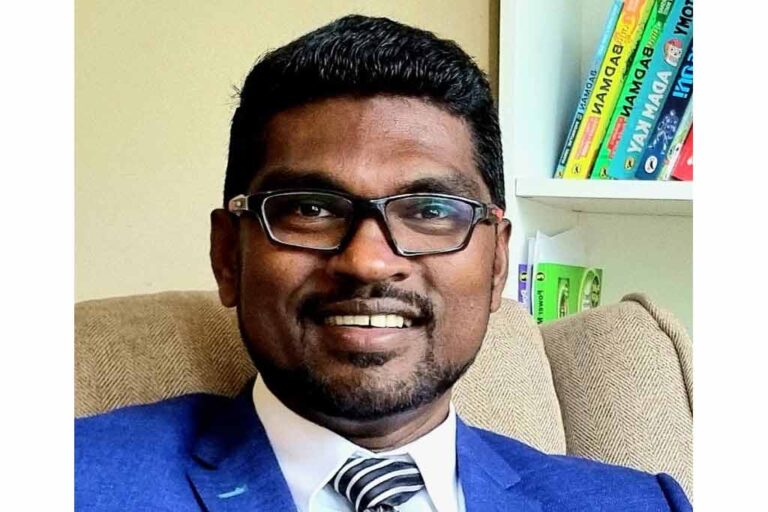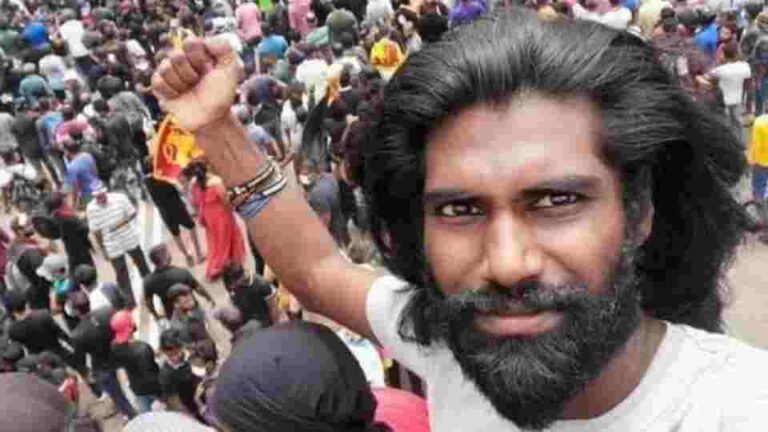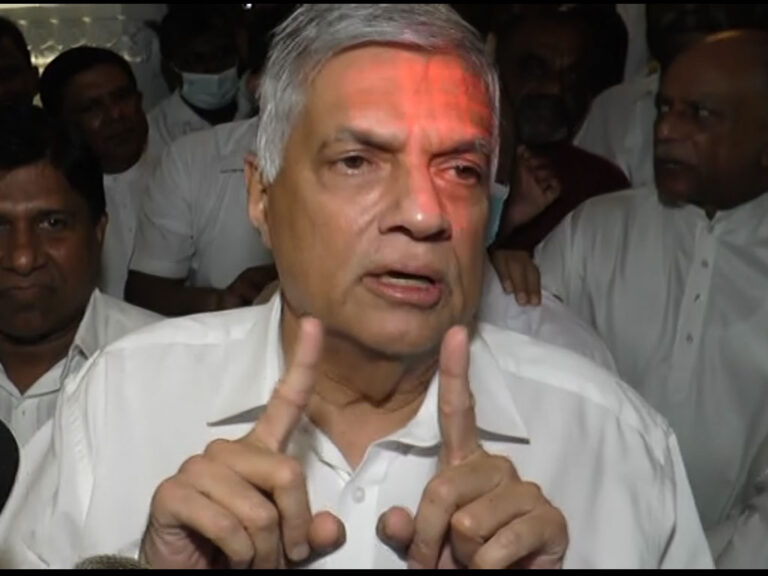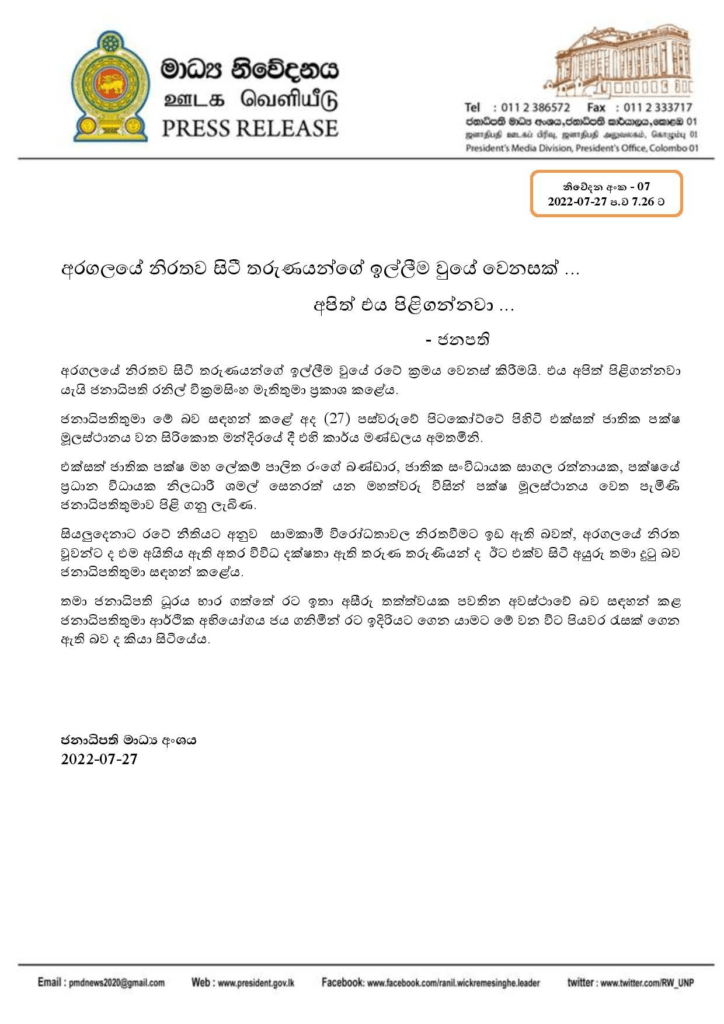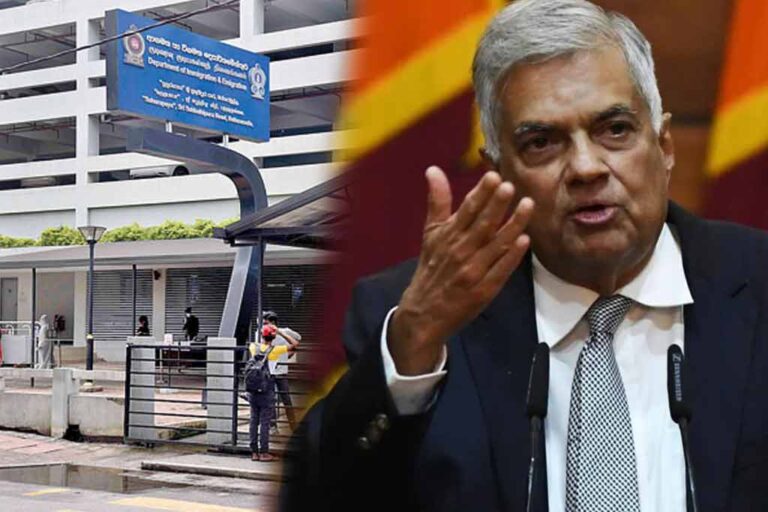Former President of the General Students’ Union of the University of Ruhuna who is in police custody is set to be produced before the Fort Magistrate Court today (28).
Pushipika was reportedly abducted by a group of people while he was finishing the protest held in front of the Fort Railway Station by the Collective of Trade Unions and Multi-people Organisations yesterday and it was later revealed that the ex Students’ Leader was taken into custody by the Colombo South Crimes Division.
Pushpika who is an active voice of the people’s struggle is accused of holding agitations on May 19, June 09 and June 10 in front of the Education Ministry in Isurupaya, Colombo Fort by violating a court order, being a member of an unlawful assembly, criminal coercion against police officers and damaging public property.
MIAP

